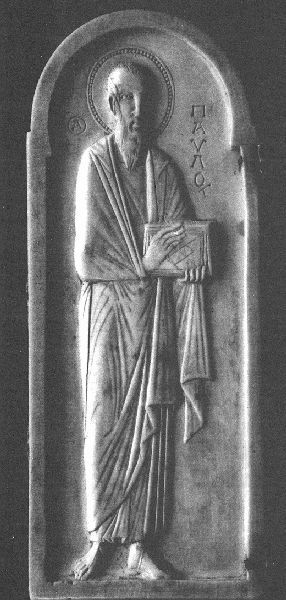
For a number of years after Jesus left his disciples behind, the "Way" was primarily confined to Palestine and some of the Jewish communities elsewhere. It was a Jewish movement, a persecuted subset of the Jewish religion of the times. Jesus' message was not being brought to a Gentile audience. Then, as Saul of Tarsus was on a journey (with the blessings of the Jewish high priest) to organize the systematic persecution of Jesus' followers at Damascus, the risen Christ changed his life and set him upon a mission which would lead to Christianity becoming a primarily Gentile religion founded not upon Judaic traditions but upon Hellenistic ideas and world views. Christianity would diverge from its Jewish roots, and a distinctly Jewish Christianity would be gone and forgotten within a hundred years.
Over the centuries, many of Paul's original and very pragmatic teachings and methods would become misunderstood and misapplied, as people forgot that Paul had preached and written to real people in real circumstances with real issues at stake. A more literalistic and simplistic approach to reading Paul became the norm. A great deal of misunderstanding of Paul has resulted from this lack of scholarship. Paul is now often understood in ways that are entirely inconsistent with his actual teachings, and is often mislabeled as chauvinistic, narrow-minded, judgmental, etc.
Join us in the Auditorium on Sunday mornings this fall for a topical study on the Apostle Paul.
Suggested Readings at various points during the study
Interesting websites on Paul - 'caveat emptor'
Comments or Questions? Email me…..
Our topics will include, but not be limited to:
A "time line" of Paul's life and ministry My Chronology of Paul's travels and writings
What do we know about Paul the person?
What made him "do it"?What is Paul's message? Who does Paul understand Jesus to be?
How does Paul spread his message? How does Paul plant communities of believers?
How does Paul expect believers to live individually? in community?
How does Paul mediate the problems of communities of believers?
How do existing social norms and conditions affect Paul's ministry?
What resources does Paul use to find solutions to the problems of his ministry?
How does Paul develop a theology of Jesus over time?
How does Paul develop and communicate a "rule" for Christian living?
I think that you are entitled to know what your teacher thinks / believes about
God, the Bible, theChurch, and life in general.